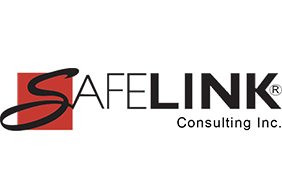
Occupational heat exposure is a real brewery safety concern and not just during hot summer months. Heat exposure can also occur during inside hot working conditions. Breweries must include heat exposure as a workplace hazard.
There are no direct OSHA standards that relate to employee heat exposure. But OSHA's General Duty Clause states employers must provide a place of employment that is free from recognized hazards that may cause death or serious harm. Employers must have a workplace safety program covering tasks that involve heat exposure. Create workplace policies on heat exposure to ensure employee safety. Train employees on how to recognize the warning signs of heat stroke and heat exhaustion. Heat-related illnesses can escalate, leading to delirium, organ damage and even death. Let’s review some of the health effects of heat exposure and how employers can prevent employee injury.
Who is at the most risk?
There are several heat-related illnesses, including heatstroke, heat exhaustion and heat cramps. Workers exposed to hot and humid indoor or outdoor conditions are at risk of heat-related illness. Employees doing heavy work tasks or using bulky protective clothing and equipment are at risk. Some workers might be at greater risk than others if they have not built up a tolerance to hot conditions, or if they have certain health conditions. Those most at risk in the workplace include:
- Elderly employees
- Individuals with heart or circulatory problems or other long-term illness
- Employees who work outdoors
- Employees working indoors around heat generating materials or equipment (mash tun, lauter tun, kettle)
- Employees performing confined space work
- Individuals taking medications that alter sweat production
- Alcoholics and drug abusers
Heat-related Illnesses
Heatstroke
Heatstroke can occur when the ability to sweat fails and body temperature rises quickly. The brain and vital organs are effectively "cooked" as body temperature rises to a dangerous level in a matter of minutes. Heatstroke is often fatal, and those who do survive may have permanent damage to their organs.
Someone experiencing heatstroke will have extremely hot skin, and an altered mental state, ranging from slight confusion to coma. Seizures also can result. Ridding the body of excess heat is crucial for survival.
- Move the person into a half-sitting position in the shade
- Call for emergency medical help immediately
- If humidity is below 75%, spray the victim with water and fan them vigorously; if humidity is above 75%, apply ice to neck, armpits or groin
- Do not give aspirin or acetaminophen
- Do not give the victim anything to drink
Heat Exhaustion
When the body loses an excessive amount of salt and water, heat exhaustion can set in. People who work outdoors and athletes are particularly susceptible during high temperature months.
Symptoms are similar to those of the flu and can include severe thirst, fatigue, headache, nausea, vomiting and, sometimes, diarrhea. Other symptoms include profuse sweating, clammy or pale skin, dizziness, rapid pulse and normal or slightly elevated body temperature.
Uncontrolled heat exhaustion can evolve into heatstroke, so make sure to treat the victim quickly.
- Move them to a shaded or air-conditioned area
- Give them water or other cool, nonalcoholic beverages
- Apply wet towels or having them take a cool shower
Heat cramps
Heat cramps are muscle spasms that usually affect the legs or abdominal muscles, often after physical activity. Excessive sweating reduces salt levels in the body, which can result in heat cramps.
Workers with pain or spasms in the abdomen, arms or legs should not return to work for a few hours. Instead:
- Sit or lie down in the shade.
- Drink cool water or a sports drink.
- Stretch affected muscles.
- Seek medical attention if you have heart problems or if the cramps don't get better in an hour.
Heat-related Illness Prevention
Heat-related illnesses can be prevented. Important ways to reduce heat exposure and the risk of heat-related illness include engineering controls, such as air conditioning and ventilation, that make the work environment cooler, and work practices such as work/rest cycles, drinking water often, and providing an opportunity for workers to build up a level of tolerance to working in the heat. Breweries should include these prevention steps in workplace training and plans. Also, it’s important to know and look out for the symptoms of heat-related illness during outside hot weather or inside hot working conditions. Plan for an emergency and know what to do — acting quickly can save lives! Include these precautions and work practices as part of your brewery safety plan to protect workers from heat-related illnesses.
Learn more about how to run a safe brewery. Get your FREE Brewery Safety Checklist here:
Learn more about what SafeLink Consulting can do to help your business with compliance services, including safety compliance, to meet OSHA training requirements and quality system consulting to meet FDA compliance. SafeLink Consulting assists businesses with workplace safety training, infection control training, quality systems, assessments, audits, due diligence, and more.
Get Beverage Industry compliance - SafeLink Consulting assists beverage businesses such as the craft brewery, winery, cidery, distillery, vintner with meeting OSHA compliance and responding to an OSHA citation, health & safety, FDA requirements / GMP - Good Manufacturing Practices.
Get notification when new regulatory compliance training courses are available plus upcoming news and events by subscribing to our email news.








Leave Comment